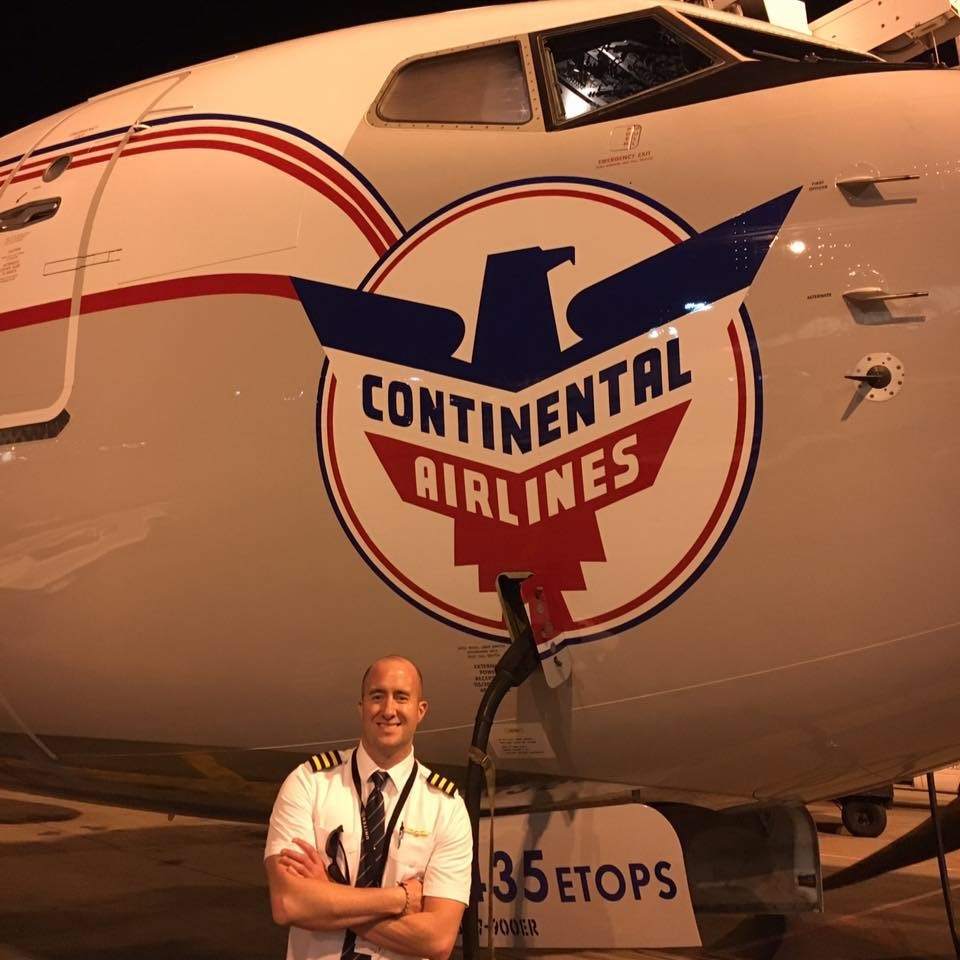

Describe one of your typical workdays.
I like to get to the gym and grab a good meal either at the hotel or at home before a trip in order to get my mind focused on the task ahead. I will then meet the other pilot in the flight planning area an hour or so before the trip. We go through introductions and discuss everything from weather to operational issues that affect the flight. Once we feel thoroughly briefed and ready we head to the gate. Typically the first officer conducts the walk around safety check while the captain begins processing items on the flight deck. As passengers are boarding, we make sure everything is ready in the flight management computers, run preflight checklists, and orchestrate the preparation of the aircraft with all ground personnel. Once everything is set we take off and work closely with air traffic control, the flight attendants, and company to make sure everything runs smoothly. The length of each trip varies on the 737, sometimes it's a quick 45 min flight, other times we stretch it to over 6 to get to the Hawaiian islands. Once the flight is over we shut down the plane, do our checklists and head to the hotel to relax. The destinations we fly to provide great opportunities for fun and adventure.
How many hours do you work in a typical week?
This varies greatly with pilot preference per month. I'm gone typically 12-18 days a month. I fly roughly 20 hours per week.
What parts of your job do you find to be professionally challenging?
Due to the increase in technology of modern aircraft, pilots have become managers of multiple integrated systems. Add this to guiding an entire team (flight attendants, dispatch, ATC, etc.) through day to day challenges (weather, emergencies, etc ) and our workload can increase rather quickly. It is challenging and rewarding to find the right balance and successfully find solutions in this complex system.
What do find most enjoyable?
I would say the interaction with a very diverse world and the myriad of things I learn from other cultures.
Are there any downsides to your job?
Being away from home for extended periods can be challenging as well as hours of low activity (cruise altitude) followed by moments of high workload (approach environment).
The airline industry is always changing. What have you seen from inside your company?
I've been lucky enough to see the merger of two airlines into one. United is a product of two very different cultures. We have had to condense our operations and become more efficient in order to be profitable. The combination of retirements and airline growth has put a lot of pressure on the hiring and training departments to balance demand with the production of quality personnel. Things are beginning to move very quickly which is great as long as we maintain quality.
Where do you think the changes will happen in the next five years?
The airline industry is starving at the bottom. Regulations and market demand are driving the workforce up towards the major airlines which leaves a gaping hole for the regional airlines to fill in terms of quality personnel. For those looking to progress quickly from training to high paying jobs, this is the time to act. Take advantage of the internships and any other opportunity to shoot up now before the major airline slots are taken.
What is the typical salary for a person in your position in the company?
Currently, United has an industry leading contract with its pilots. First year first officers can make anywhere between $75,000 - $96,000
What educational preparation would you recommend for someone who wants to advance in this field?
I can't say this enough, INTERNSHIPS AND INTERNSHIPS! So many scholarships and internships go unused in the airline industry which is a travesty. To a certain point, everyone is trained to fly a plane, what will set a candidate apart from the rest is "face time" with their desired employer. Take the time to pursue these opportunities and doors will open!
What qualifications do you seek in a new hire?
After years of teaching I've seen over and over again that a humble attitude, passionate work ethic, and the desire to improve are the characteristics of successful pilots. Develop these early and make them second nature and you will control your future!

